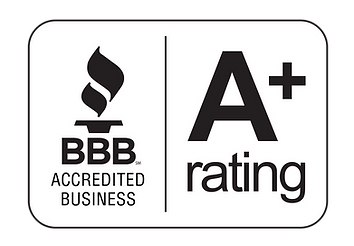Medicare Set Aside FAQ
What Does " Medicare Eligible" Mean?
A person is Medicare eligible if he or she is:
- 65 years of age or older;
- Receiving Social Security Disability for 24 months or longer; or
- Suffering from End Stage Renal Disease;
- Suffering from Lou Gehrig’s disease (amyotrophic lateral sclerosis)
If you are age 65 or older, you are generally eligible to receive Medicare Part A (hospital insurance) and Medicare Part B (medical insurance) if you are a United States citizen or a permanent legal resident who has lived in the U.S. for at least five years in a row.
Should You Administer Your Own MSA? What Would Be Your Responsibilities?
Injured parties:
- Are only allowed to spend their MSA funds on Medicare-covered treatments related to their injury.
- Must place MSA funds in a separate, interest-bearing bank account. You cannot commingle MSA funds with other personal funds.
- Must keep copies of bills & receipts
- Must report all expenses they used their MSA funds on to the Centers for Medicare and Medicaid Services ('CMS") each year and in the case their funds run out
- Must only pay the state fee schedule or "usual and customary" pricing for treatments & prescriptions
- Think about it. Can you handle this?
There are a number of complex rules to follow in the administration of MSAs. These are detailed in CMS' WCMSA Reference Guide and its Self Administration Toolkit. If you self-administer it is your responsibility to stay up to date. An administrator, like Ametros, offers products to ensure your account is used and reported properly. CMS "highly recommends" the use of a professional administrator.
The most basic rule to keep in mind is that the injured party is only allowed to spend their MSA funds on Medicare-covered expenses directly related to their injury. Secondly, the injured party needs to keep track of all the expenses to report to Medicare that they used the funds properly. This is important so that, in the case the MSA funds run out, Medicare will agree to begin coverage for injury-related treatment.
To provide more detail step by step: the MSA funds must be placed in a separate, interest-bearing bank account.
Source: Ametros
Who Pays the Income Taxes on Accrued Interest in the MSA?
Interest on funds held in an MSA account (whether self-administered or professionally administered, is attributed to the claimant/plaintiff, who receives an IRS form 1099-INT after the end of each calendar year. The interest on funds held in an MSA is considered taxable income and must be reported by the claimant/plaintiff on his or her Form 1040 or 1040-EZ, when they file their tax return.. The MSA account can however, provided the funds to pay any income taxes due on income generated in the MSA. In other words, the MSA can reimburse the claimant/plaintiff for its share of taxes and this reimbursement is not considered income by the IRS. CMS does permit payment of taxes from the MSA. There should be adequate documentation of the tax for the annual accounting of the MSA. Support can be found in the 7/11/2005 CMS Memo Q6.
Need more info about Workers Compensation Medicare Set-Asides?
CMS publishes a lot of helpful information about worker's compensation MSAs.
WCMSA Self-Administration Tool-Kit.
WCMSA Reference Guide v4.0 April 2024
Can you Sell the Payment Rights in a Structured MSA?
Selling workers' comp structured settlement payments
- sale of workers compensation structured settlement payments may be prohibited in some states
- may be opposed by the workers compensation board
- may not be in your best interest if you are a Medicare beneficiary and Medicare has been paying for work related injuries.
I've Been Offered a Structured MSA with Seed Money, a Temporary Life Annuity and No Cash
If you have been adjudicated as having a permanent total injury, keep negotiating. The settlement offer does not put you in a better position.
MMSEA Reporting CMS Update
MMSEA S111 GHP Alert (cms.gov) February 23, 2024 update
NGHP User Guide - Chapter III Policies v. 7.5 April 1, 2024 Q2 Release (cms.gov)
Medicare Secondary Payer (MSP) Mandatory Reporting Provisions Section 111 of the Medicare, Medicaid, and SCHIP Extension Act (MMSEA) of 2007 (See 42 U.S.C. 1395y(b)(7)&(b)(8)) Technical Alert: Change to Worker’s Compensation Reporting
Last updated April 1, 2024
#WCMSAFAQ #MMSEA #insurerreporting
4structures.com, LLC
The Structured Settlements and Settlement Planning Company
43 Harbor Drive, #309 Stamford, CT 06902 USA
888-325-8640
646-849-1588
New York City (Manhattan, Bronx, Brooklyn, Queens, Staten Island), Westchester(NY), Nassau County (NY) , Suffolk County on Long Island (NY), Albany County (NY), Oswego County (NY), Steuben County (NY), Broome County (NY), Onondaga County (NY), Fairfield County (CT), New Haven County (CT), Hartford County (CT) New London County (CT), Tolland County (CT), Litchfield (CT), Middlesex (CT) , Bergen County (NJ), Middlesex County (NJ), Ocean County (NJ)
Structured Settlement Experts and Settlement Planning Consultants for settlements from claims or lawsuits arising out of Aviation accidents, Medical Malpractice, settlements involving Serious Personal Injury, Wrongful Death, Wrongful Incarceration, Employment, Civil Rights, Discrimination of any type, Auto accidents, Motorcycle accidents, Maritime accidents, Workers' Compensation, Product Liability, Real Estate Liability, Construction Defect claims or lawsuits, Landlord/Tenant,
Property, Attorney Fee Deferrals, Funding Agreements, Structured Installment Sales, Environmental Liability and Commercial Dispute settlements.
Structured settlements and structured settlement brokerage, settlement planning, Sudden Money®, financial transitionist, funding agreements and insurance related services provided by 4structures.com LLC.
Financial Advisory Services provided through Groove Financial Advisors , LLC, and its service partners.
Fiduciary services, including the custody and administration of trusts provided via service partners.
Securities and Insurance Products are NOT Insured by the FDIC, nor by any other Federal or State Government Agency, are NOT a Deposit of and are NOT Guaranteed by a Bank or any Bank Affiliate, and securities MAY lose value.
4structures (USPTO Reg. 4640532) , 4structures.com (USPTO Reg. 4640531) , We Know Structured Settlements (USPTO Reg. 3089738),
Because Certain Sells (USPTO Reg. 6237309) and We Know Structured Sales (USPTO Reg. 3490489), are Registered Trademarks of 4structures.com LLC.
John Darer is a Registered Trademark of John Darer (USPTO Reg. 4674907)
John Darer California insurance license 0761076
4structures.com LLC CA license OF19785 d/b/a 4structures Settlement Insurance Agency






